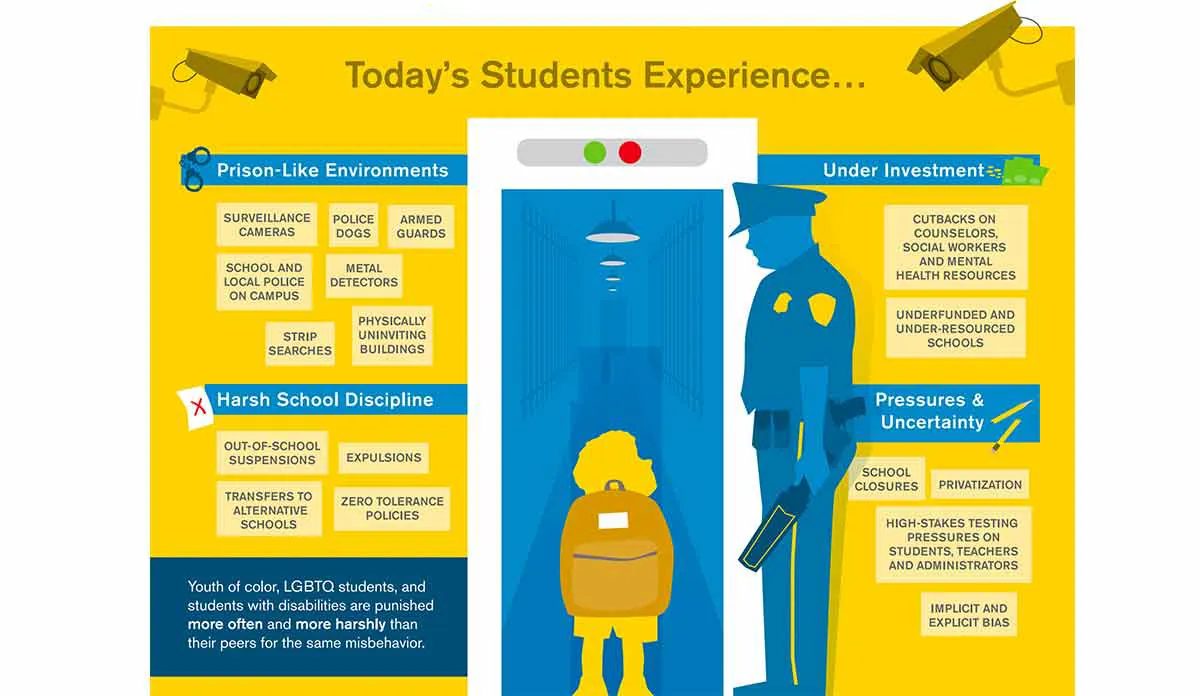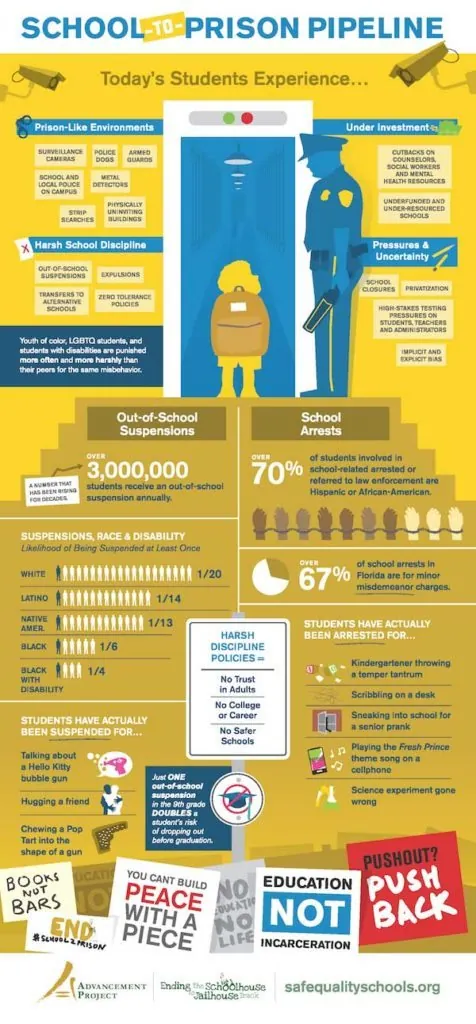The School-to-Prison Pipeline
Exclusionary school discipline, disproportionately experienced by children of color, LGBTQ children, and children with disabilities, is strongly associated with delinquency and criminal justice involvement.

Read Time: 2 minutes
Published:
Experiences of school discipline, specifically exclusionary discipline (suspension, alternative school placement, expulsion, and arrest), are strongly associated with delinquency and criminal justice involvement.
This “school-to-prison pipeline” functions in two key ways. First, school discipline leads to delinquency through the criminalization of school misbehavior. That is, law enforcement officers (rather than school staff) respond to minor school rule infractions directly, leading automatically to juvenile justice involvement. Second, exclusionary discipline starts students on the path from suspension to dropout or failure to graduate. In fact, one suspension doubles the risk a student will fail to graduate from high school, which in turn significantly increases the risk of juvenile and criminal justice involvement.
The school-to-prison pipeline harms children of color at significantly disproportionate rates as well as disparately impacting LGBTQ children and children with disabilities. For instance, black students are a disproportionate 39% of those expelled and receive combined suspensions or expulsions at a rate 3.5 times higher than white students. Studies comparing LGBTQ students with peers are more fragmented, but data indicates higher rates of school suspension for middle and high school aged LGBTQ students (15%) than peers in a national sample (11%). Finally, students with disabilities have been found to experience double the rate of out-of-school suspensions than comparable students without disabilities.
The Advancement Project offers one of a growing number of infographics illustrating the school-to-prison pipeline, below.

Databyte and photo via The School-to-Prison Pipeline: Infographic. Advancement Project.



